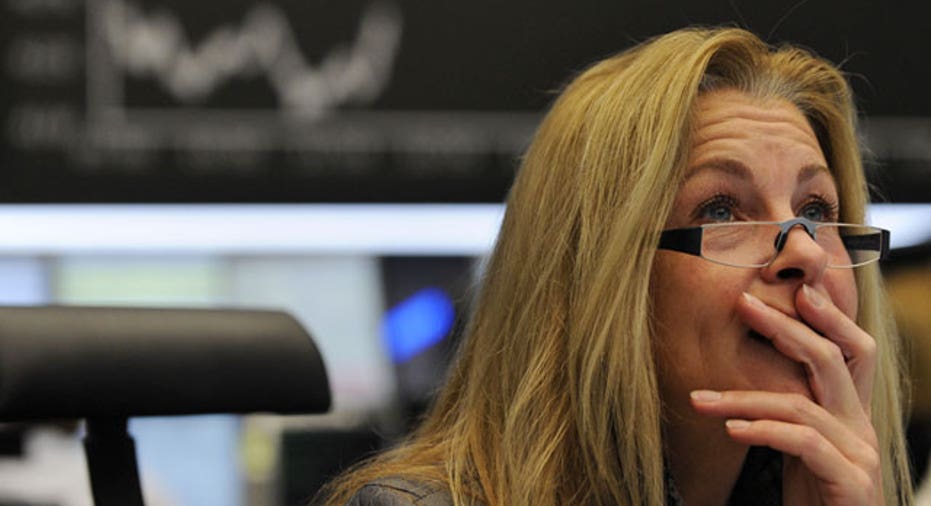World Markets Plummet Amid Euro Fears

European share prices fell to a 26-month low on Monday, led by banks and insurers on concerns over a lack of political unity in the euro zone in tackling the debt crisis as worries grow that Greece could default on its debts.
Adding to the gloom was the failure of the weekend's meeting of finance ministers from the Group of Seven industrialised nations to come up with any fresh proposals for boosting global growth.
"We would expect policymakers to stimulate the economy, but they are finding it difficult to reach a common viewpoints .. there is no real consensus," said Veronika Pechlaner, a fund manager on the Ashburton European equity fund.
"The longer they wait, the more difficult it will be and that is what the market is looking at."
French banks, which have high exposure to sovereign peripheral debt, were standout losers on fears they could be hit by a Moody's credit downgrade after a three-month review.
BNP Paribas , Societe Generale and Credit Agricole fell 9.5 to 11.7 percent.
The STOXX Europe 600 banking sector index was down 3.5 percent, making it the worst sectoral performer after it briefly touched its lowest level since March 2009.
The bank index has fallen 46.9 percent since its year high in February when worries grew about global growth and contagion in the euro zone debt crisis.
By 0911 GMT the pan-European FTSEurofirst 300 index of top shares was down 2.5 percent at 892.69 points after dropping 2.6 percent on Friday when the European Central Bank's German board member Juergen Stark quit amid disagreements over the bank's policy of helping out troubled euro zone nations by buying up their sovereign bonds.
"The serious issue is the division in the European Central Bank,"said Mike Lenhoff, chief strategist at Brewin Dolphin. "This undermines its commitment to the bond-buying programme,"
"This is clearly not good news for the market, it is bad news for the banks and the equity markets, it just keeps them under pressure."
The index briefly dipped under a key support level - its August low from its sell-off which started in July at 888.11 to touch a 26-month low at 884.81.
The next support level was seen at its 61.8 percent Fibonacci retracement from its March 2009 low to its February high or 852.85 points.
Europe's main gauge of market fear is the Euro STOXX 50 volatility index , which jumped 10 percent and hit a three-week high - the higher the index, the lower the appetite for market risk.
Germany's DAX briefly dipped under the psychological 5,000 level to 4,993.07 for the first time since July 2009, but had since pared losses and was down 3.1 percent to 5,030.18.



















